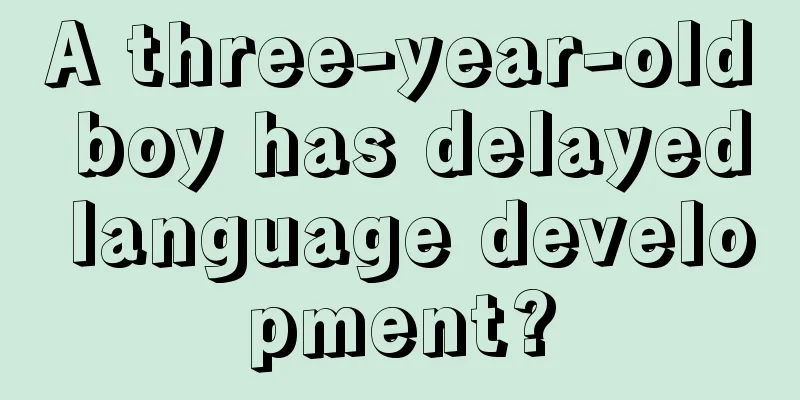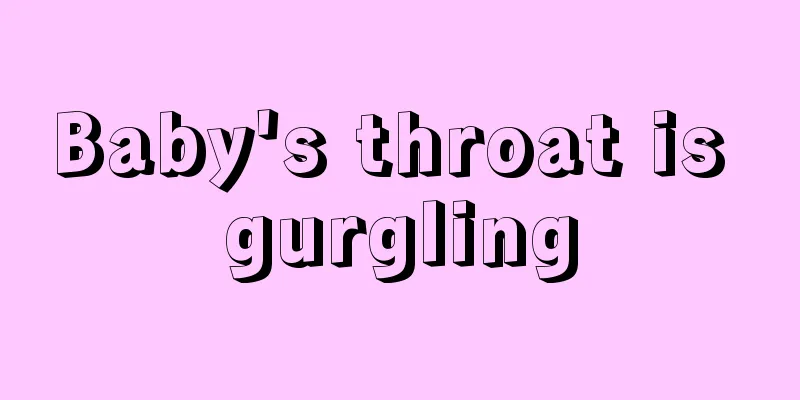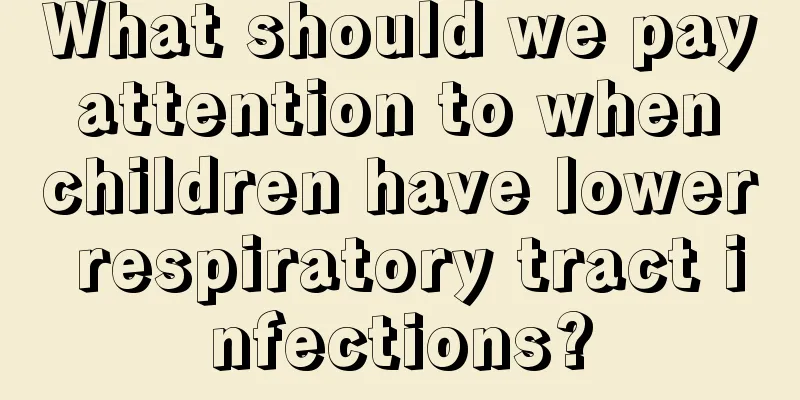Is it normal to have teeth at 5 months old?

|
From the moment the baby was born, he attracted the attention of the whole family. After birth, the child continues to grow and develop, and every change and every progress is noticed by the family. Since the child is still relatively young, especially for new mothers, they will be more worried about whether the child’s current growth and development is healthy and normal. So, is it normal for a baby to grow teeth at five months? The following is a detailed introduction for everyone. Babies usually start to grow teeth between 4 and 10 months, so this is normal. In order for your baby to grow healthy and neat deciduous teeth, proper care when the deciduous teeth erupt is crucial. When the baby's deciduous teeth erupt, the gums become red, swollen and congested, which can easily cause itching of the gums. The baby likes to suck his fingers, bite the nipple and drool. Generally, there are no abnormal symptoms when babies grow teeth. Some babies may have low fever, restless sleep, drooling and mild diarrhea. At this time, you should feed your baby more boiled water to clean his mouth, and wipe your baby's saliva in time to prevent the lower jaw from becoming red. In addition, you can give your baby some biscuits, apple slices and other foods to provide teeth grinding and prevent tooth itching, and supplement some high-protein, high-calcium foods to promote healthy tooth growth. Do not let your baby suck on the pacifier when teething. Prolonged sucking will cause teeth to protrude, affecting chewing ability and facial appearance.
1. Pain: Because of teething, the pain in the gums may cause the baby to show signs of pain and discomfort. During this period, the mother must give the baby adequate care in time to help the baby get through this stage in time. 2. Tooth discomfort can make babies irritable and cry, especially one or two days before teeth eruption, and it is most obvious in the early stages of teeth eruption. 3. Red cheeks: Mothers may notice a red spot on their baby’s cheeks, which may also be a symptom of teething. 4. Drooling: Excessive saliva produced in the early stage of teeth growth will cause the baby to drool frequently. You should help the baby clean the saliva in time. 5. Chewing, munching or biting: Put anything near your baby's mouth and he may show these movements, but don't let him chew hard objects.6. Swollen gums: Check your baby’s mouth to see if there are any swollen or puffy gums. If the gums start to swell, then there is a high chance that your baby has started to grow teeth. 7. Restless sleep: The baby may wake up at night and seem irritable after waking up, even though he was sleeping soundly before. 8. Increased body temperature: The temperature may be slightly increased in the early stages, so the baby may feel a little hotter than usual. |
<<: Will teething cause fever?
>>: What to do when a child has diarrhea while teething
Recommend
What to do if your child has a fever and sweats
The normal body temperature of a child does not e...
The reason why children have green poop
Nowadays, children have a richer diet, so they ar...
Why do children drool a lot?
It is actually normal for babies to drool a lot. ...
Things to pay attention to when your child wakes up at night
For children, they should have a relatively peace...
Why do newborn baby's nails turn black?
The baby's health is the biggest concern of t...
What are the benefits of girls learning Taekwondo?
Many children start practicing Taekwondo at an ea...
Why does a child clench his teeth when sleeping?
Careful parents may find that their children grin...
What should I do if my child doesn't like doing homework?
Children's education issues give most parents...
What to do if your baby's hand is broken and bleeding
Children are usually naughty when running and jum...
What should I do if my child’s butt is red and itchy? These methods work great!
Many parents will let their children wear open-cr...
Did you use flash for newborn photography?
Generally speaking, for a newborn baby, most pare...
What to eat when baby sweats
I believe that many babies often encounter the si...
The child felt nauseous after taking the anti-inflammatory injection and vomited all the medicine after taking it.
In life, many children are particularly susceptib...
How to treat baby's lip hemangioma
For a family, the baby is the most important fami...
What should children eat if they have a hoarse throat?
Many parents often find that their children have ...









